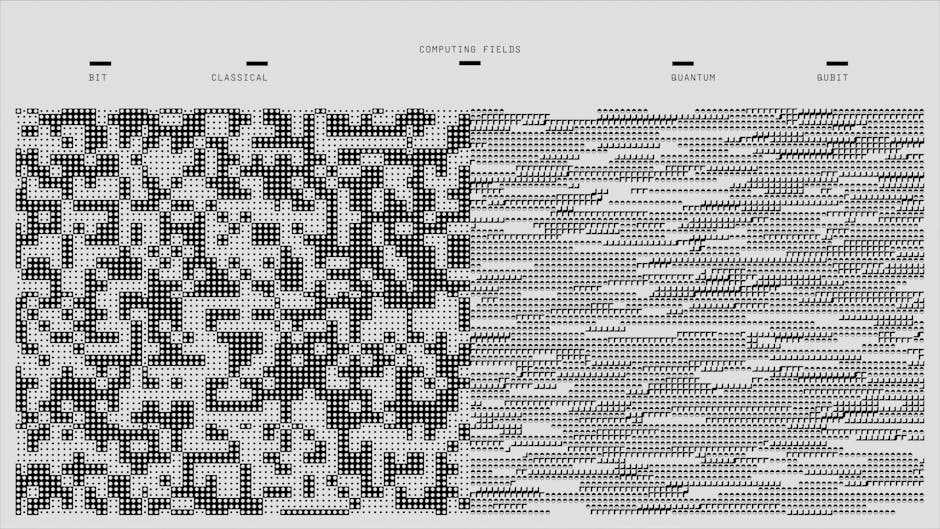As a cybersecurity enthusiast, I’ve always been intrigued by the evolving landscape of digital defense. Quantum computing, with its potential to revolutionize technology, is now poised to disrupt the very foundation of cybersecurity as we know it. The looming question is: how will this advanced computing paradigm impact the security measures that protect our sensitive data?
In this article, I delve into the intricate relationship between quantum computing and cybersecurity, exploring the potential threats and opportunities that arise with this groundbreaking technology. From encryption protocols to threat detection mechanisms, the implications of quantum computing on cybersecurity are vast and profound. Join me as we unravel the complex interplay between quantum advancements and digital defense strategies in the ever-evolving realm of cybersecurity.
Quantum Computing: A Brief Overview
Quantum computing, a cutting-edge field in computer science, harnesses the principles of quantum mechanics to process information. Unlike classical computers that use bits, quantum computers utilize quantum bits or qubits. These qubits can exist in multiple states simultaneously due to superposition and entanglement, enabling quantum computers to perform complex calculations at an astounding speed.
In traditional computing, information is processed in a linear sequence of bits. However, quantum computing operates differently by leveraging quantum phenomena to solve problems that are infeasible for classical computers. The potential of quantum computing to revolutionize various industries, including cybersecurity, is immense.
As quantum computing continues to advance, it poses both challenges and opportunities for cybersecurity. The increased processing power of quantum computers threatens current encryption methods, potentially rendering them vulnerable to quantum attacks. On the other hand, quantum technology also offers new possibilities for enhancing cybersecurity through advanced threat detection algorithms and secure communication protocols.
Understanding the fundamentals of quantum computing is crucial in comprehending its implications for cybersecurity. As quantum technology progresses, it is essential for cybersecurity professionals to adapt their defense strategies to mitigate emerging threats posed by quantum computing capabilities.
Quantum Cryptography: Enhancing Security with Quantum Mechanics
Quantum cryptography leverages the principles of quantum mechanics to bolster cybersecurity measures. By harnessing quantum properties, this innovative approach enhances data security significantly.
- Quantum Key Distribution
In quantum key distribution, cryptographic keys are generated using quantum properties like superposition and entanglement. These keys are shared between parties securely, as any attempt to intercept them would disrupt their quantum state, alerting the parties of a potential breach.
- Quantum-resistant Algorithms
Quantum-resistant algorithms are designed to withstand attacks from quantum computers. Unlike traditional cryptographic algorithms vulnerable to quantum computing’s immense processing power, quantum-resistant algorithms ensure data remains secure even in the face of quantum threats.
Current Cybersecurity Technologies and Limitations
As I delve into the realm of current cybersecurity technologies and their limitations, it becomes evident that classical encryption methods might soon face formidable challenges. Quantum computing’s rapid advancement threatens the reliability of traditional encryption approaches in safeguarding sensitive data.
Encryption and Decryption in Classical Computing
In classical computing, encryption and decryption processes rely on mathematical algorithms to secure information. These algorithms encode data into ciphertext, making it unintelligible to unauthorized users. However, the rising computing power of quantum systems could potentially undermine the effectiveness of these encryption techniques.
While classical encryption methods like RSA and AES are widely used today, they may prove vulnerable to quantum attacks in the future. Quantum computers have the potential to break these encryption schemes by leveraging their computational superiority to solve complex mathematical problems efficiently.
Cybersecurity professionals need to stay vigilant and explore quantum-resistant encryption methods to mitigate the risks posed by quantum computing advancements. Adapting to these emerging technologies is crucial to maintaining data security and privacy in an ever-evolving digital landscape.
Quantum Computing Threats to Cybersecurity
Exploring the landscape of cybersecurity in the quantum computing era reveals a looming challenge for traditional encryption methods. As quantum computing harnesses the power of qubits and quantum phenomena, it poses a significant threat to current encryption standards. The inherent vulnerability arises from quantum computers’ capability to solve complex mathematical problems at an exponential speed compared to classical computers.
In this quantum realm, widely used encryption methods like RSA and AES face a formidable adversary. The sheer computational prowess of quantum computers enables them to easily break these encryption algorithms by swiftly factoring large numbers or solving discrete logarithm problems. As a result, the confidentiality and integrity of sensitive data protected by these conventional encryption methods are at risk of compromise in the quantum computing age.
The urgency for cybersecurity experts to acknowledge this vulnerability and adapt to quantum threats cannot be overstated. It is imperative to shift towards quantum-resistant encryption techniques that can withstand the computational might of quantum adversaries. Embracing advancements in post-quantum cryptography, which utilizes mathematical approaches resistant to quantum attacks, is crucial to ensuring robust data security in an era dominated by quantum computing.
As quantum computing continues to progress, the cybersecurity landscape must evolve in tandem to safeguard sensitive information from the potent threats posed by quantum adversaries. Adapting to quantum-resistant encryption methodologies is not merely a recommendation but a necessity in the face of advancing technologies reshaping the digital security paradigm.
Future Implications and Challenges
Looking ahead, the integration of quantum computing into cybersecurity will bring about significant changes and pose both opportunities and challenges. As quantum computing matures, it will revolutionize the security landscape, offering the potential for enhanced encryption methods but also introducing new vulnerabilities that must be addressed proactively.
One of the key implications of quantum computing for cybersecurity is the need to develop quantum-resistant encryption algorithms. Traditional encryption techniques, such as RSA and AES, will become obsolete in the face of quantum-powered attacks, necessitating the adoption of quantum-safe cryptographic protocols. This shift is crucial to ensure the continued protection of sensitive data in a post-quantum computing era.
Moreover, quantum computing’s ability to swiftly solve complex mathematical problems raises concerns about the integrity of digital signatures and secure communication channels. As quantum computers grow in power, the risk of cryptographic breaches by quantum adversaries escalates, underscoring the urgency for organizations to fortify their cybersecurity measures with quantum-resistant solutions.
Addressing these challenges will require a collaborative effort from cybersecurity experts, researchers, and industry leaders to develop and implement robust quantum-safe encryption standards. By staying proactive and investing in quantum-resistant technologies, organizations can mitigate the risks posed by quantum computing and maintain data security in a rapidly evolving digital landscape.
The future implications of quantum computing on cybersecurity necessitate a strategic shift towards quantum-resistant encryption methods to safeguard sensitive information from potential threats. Embracing these changes and staying informed about advancements in quantum-safe cryptography will be essential for organizations seeking to adapt to the quantum computing era and strengthen their cybersecurity posture.


 Marylou Grant is a key helper at The Code Crafters Hub, where she contributes significantly to the development and growth of the platform. Her expertise in software development and her passion for technology make her an invaluable asset to the team. Grant's work involves everything from assisting with content creation to ensuring the site's functionalities meet the highest standards, which helps in delivering a seamless experience to users.
Her dedication to The Code Crafters Hub is evident in the quality of the updates and insights she helps provide. Grant’s role in the project reflects her commitment to advancing the field of software development and keeping the hub at the cutting edge of industry trends. Based in Warren, MI, she plays a pivotal role in ensuring that the platform continues to offer relevant and timely information on web development, game development, IoT, and cybersecurity.
Marylou Grant is a key helper at The Code Crafters Hub, where she contributes significantly to the development and growth of the platform. Her expertise in software development and her passion for technology make her an invaluable asset to the team. Grant's work involves everything from assisting with content creation to ensuring the site's functionalities meet the highest standards, which helps in delivering a seamless experience to users.
Her dedication to The Code Crafters Hub is evident in the quality of the updates and insights she helps provide. Grant’s role in the project reflects her commitment to advancing the field of software development and keeping the hub at the cutting edge of industry trends. Based in Warren, MI, she plays a pivotal role in ensuring that the platform continues to offer relevant and timely information on web development, game development, IoT, and cybersecurity.
